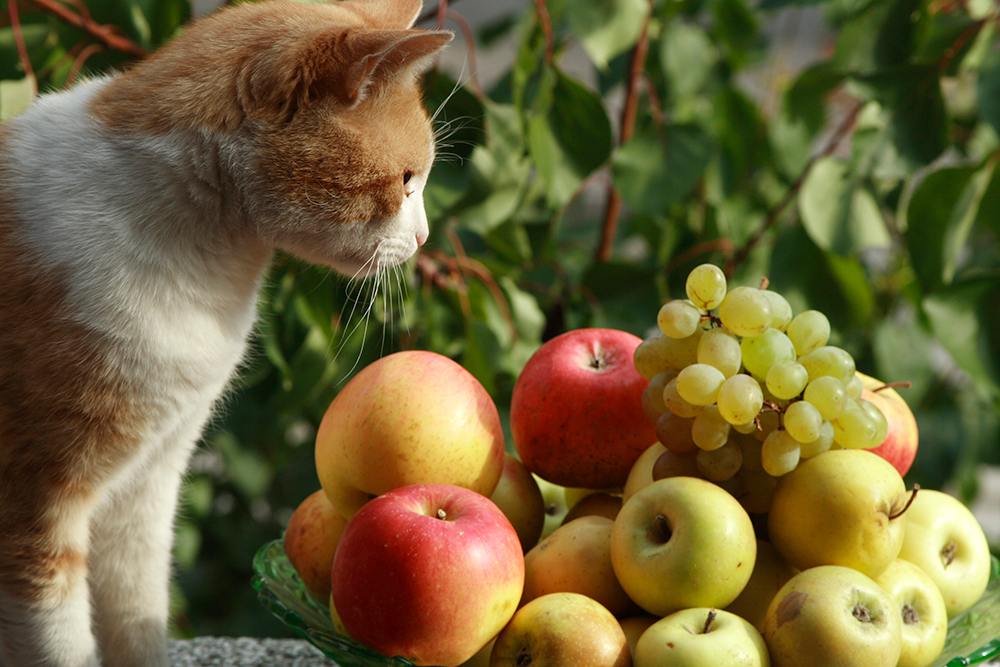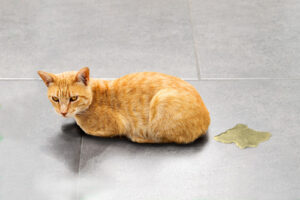Are you a feline fancier in Belle Mead, New Jersey, puzzled by the question, “Can Cats Eat Grapes?” If so, you’ve landed on the right page! As experts at the Harlingen Veterinary Clinic, we’re here to guide you through this important topic, ensuring you’re fully informed and well-equipped to protect your furry friend’s health.
Understanding Cats’ Dietary Needs
Cats, unlike their canine counterparts, are obligate carnivores. This means their diet primarily consists of meat, and certain fruits and vegetables may not be appropriate for them. Grapes are one such example. Even though these sweet fruits may be a hit with humans, they’re a strict no-no for our feline friends.
The Danger of Grapes and Raisins to Cats
While the exact toxic compound present in grapes and raisins remains a mystery, their ingestion can lead to acute (sudden) kidney failure in cats. This holds true irrespective of the grape’s type and form, whether it’s seedless, organic, peeled, or even in the form of raisins.
The Toxic Impact
Grapes, even in small quantities, can have detrimental effects on your cat’s health. The toxic impact can vary widely, from mild gastroenteritis (inflammation of the stomach and intestines) to severe kidney damage, potentially leading to sudden onset kidney failure, a life-threatening condition.
Symptoms to Watch Out For
If your cat has ingested grapes or raisins, symptoms may manifest within 24 hours and include vomiting, diarrhea, decreased appetite, lethargy, abdominal pain, or decreased urination. If you observe any of these signs, it’s critical to seek immediate veterinary assistance.
Safeguarding Your Cat’s Health
As cat owners, it’s our responsibility to ensure our homes are safe for our feline friends.
Keeping Your Home Grape-Free
Given the severity of grape and raisin toxicity, we recommend eliminating the risk by keeping these fruits out of your cat’s reach or removing them from your home altogether. Always keep your fruit bowls or pantry doors closed, and remind guests not to feed your cats any unknown foods.
Alternative Treats for Cats
If you’re looking for safe fruit options to treat your cat, consider bite-sized pieces of melon, bananas, or apples (seeds removed). However, remember that treats should not make up more than 10% of your cat’s daily caloric intake. The mainstay of their diet should still be a balanced, high-quality cat food.
When to Seek Veterinary Help
If you suspect your cat has ingested grapes or raisins, contact us immediately. The team at Harlingen Veterinary Clinic is always ready to assist you in such emergencies.
Early intervention can greatly improve the prognosis, making prompt veterinary attention crucial. Even if you’re unsure, it’s better to be safe than sorry. To make an appointment, call us at (908) 359-2000 or book online at https://harlingenveterinaryclinic.com/
To wrap up, grapes and raisins are potentially lethal to cats and should always be avoided. Keep your furry friend safe by providing them with a grape-free environment and offering safe, cat-friendly alternatives for treats.Stay vigilant for any signs of distress in your pet and never hesitate to seek veterinary help when you’re concerned about your cat’s health.
We, at Harlingen Veterinary Clinic, are committed to keeping your pets healthy and happy. If you ever have a question about your cat’s diet or health, we’re just a call or click away. So, Belle Mead pet owners, let’s ensure we give our feline friends the best care they deserve!
Remember, an informed pet owner is the best pet owner. So, keep checking back for more tips and insights into pet health and wellness. If you found this post helpful, don’t forget to share it with other cat owners in your life. Together, we can make a difference in our pets’ lives.





